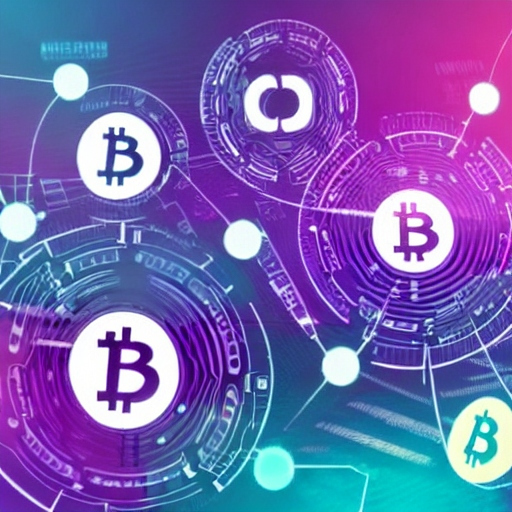While dealing with a flurry of legal and regulatory activities, a much-discussed crypto winter, and other challenges, blockchain and crypto asset enterprises must also contend with the constant discussion of AI. Venture capitalists and other investors have started to direct an increasing amount of their attention and resources towards AI initiatives as a result of ChatGPT’s (and similar solutions) quick adoption and implementation.
According to reports, after raising over $40 billion in 2022, AI start-ups raised over $5 billion in venture funding in just the first quarter of 2023. Even while projects like Web3, tokenization, and other blockchain-related initiatives are being developed and built out, some people view AI and cryptocurrency as competitors.
The larger point is lost in this.
The reality is that the massive trends of blockchain-based transactions, tokenized financial assets, and the incorporation of AI into nearly every industry are here to stay. Instead, as shown by recent initiatives and efforts to further promote bitcoin and/or cryptocurrency investing alternatives as well as the enthusiasm for AI projects (and wise policies), these trends are only expected to pick up speed in the future. However, the worries and issues that have surfaced in the crypto asset area are just as real. For businesses in this sector, trust issues, historical failures, legal actions against accused fraudsters, and a general lack of transparency continue to be challenging barriers to overcome.
Although AI is not a cure for the problems in the crypto industry, there are some ways that AI-based solutions can – and will – enhance the comfort, transparency, and understanding with which businesses and investors can use crypto when appropriate.
Real Time Transparency
The continuous lack of transparency, real-time reporting, and similar reporting standards in the crypto business is a significant problem that still exists and has drawn the ire of authorities and investors. There have been a number of models proposed, with proof of reserves momentarily gaining ground before being overtaken by problems with the lack of standardization in these accounting engagements.
These processes can be aided by the use of advanced AI in all of its forms, whether it be a large language model, neural network, or another type of AI. The main objectives of audits and other attestation engagements are to gather, verify, and report information about the company under consideration to the outside market. When seen in that light, AI applications seem to be in a good position to strengthen present efforts being made in the area to prevent fraud.
With the recent launch of Mastercard Crypto Credential, TradFi institutions have demonstrated how their drive into the cryptocurrency market is being supported by a renewed focus on transparency and fraud detection. Artificial intelligence (AI) programmes that have been trained and developed through analysis of very huge data sets seem to be a good fit to help enhance current fraud detection solutions and help generate new ones.
Smart Contract Review
Moving up the crypto asset value chain, smart contracts are essential to the smooth operation of the majority of blockchain-based and crypto asset applications. Decentralized financial apps and non-fungible tokens, for instance, must be able to communicate with both traditional financial institutions and other crypto assets and counterparties. Smart contracts, which are programmable tools that enable blockchain-based tools to automate certain operations, interact with other technology tools, and eventually deliver much of the value promised by blockchain applications, typically fuel these crucial communications and interactions.
But even with all the promise that smart contracts carry, implementation problems sometimes arise up. The use of smart contracts in many industries may be constrained by a lack of widely accepted standards, the inability to quickly modify blockchain records, and the level of specificity that may be necessary.
To simplify how these applications are deployed at the company in question, AI, whether it takes the shape of a large language model or another type of AI, can assist businesses analyze, review, and rewrite smart contracts as needed, in addition to demo testing them.
The spectacular ascent of artificial intelligence (AI) in the general market consciousness has brought this reality to light. Blockchain and crypto assets have long been searching for a “must have” application and use case. Despite its flaws, ChatGPT has produced a user-friendly application that doesn’t require any programming knowledge and presents a clear value proposition to both individuals and organizations. More payment-based applications for crypto assets may come about as a result of the emergence of AI and the quick surge in interest and investment in the field.
For instance, there is a higher chance of bots engaging, transacting, and being paid to provide services or deliver goods as chat bots and other bot-augmented procedures and tasks become more prevalent at businesses. This is a nearly perfect opportunity for tokenized assets, which enable blockchain-based payments, to play a crucial role moving ahead. Outside of working hours, AI bots and applications have the capacity to continuously analyse and transact information. It provides an almost perfect testing environment for bot-to-bot payments and confirmations when smart contracts are added on top, enabling these bots and other apps to function across a variety of tools and applications.
AI is getting a lot of attention and investment, and it can also assist in finding crypto’s essential use cases as quickly as possible.













